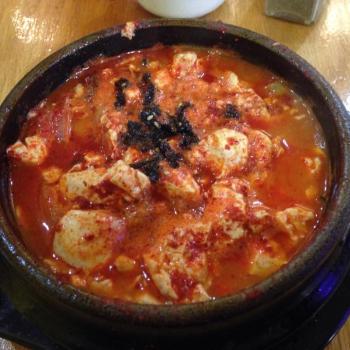![Photo from Pexels [CC0 - no attribution required]](https://wp-media.patheos.com/blogs/sites/721/2016/07/book-reading-learning-letters-1024x683.jpg)
PART 1: ‘Sure, I’ll write about growing up conservative’
PART 2: ‘I thought “conservative” just meant “solid” and “dependable”‘
Although I will be teaching a course on ‘Comparative Minority Conservatisms’ at Northwestern University in the fall quarter, my posts here will unfortunately not be able to cover the intellectual depth and breadth of the ‘conservative tradition.’ This is a personal reflection and can only take into account the influences that actually were influential as I was growing up. Any more than that, and I will have to send this all out to a peer-reviewed journal, which would be a shame, because I am sure it would be rejected.
When my parents sent me to a Catholic high school in the San Francisco Bay Area, what my parents thought they were doing ideologically and what was actually happening ideologically aligned. The school was indeed very liberal, as in most of the teachers were Berkeley graduates and were solidly left of center in their politics. But like I said yesterday, what mattered – because we were conservative – is that it was solid.
The thing is, it really was solid, even though it was liberal. The way that most of the Chinese parents at the school described the freshman honors English teacher, Mr Krantz, was: ‘He’s very liberal, but he’s solid.’ This was a compliment. To this day, Mr Krantz remains the toughest teacher I’ve ever had. On the one hand, Mr Krantz was everything we thought a liberal was, and more. He cussed in class like it was poetry: on the first day of class, he said, ‘Don’t bullshit your teacher,’ and three weeks in, he read a story out loud in class where the main characters kept saying, ‘Fuck the fucking fuckers.’ He told us while reading James Joyce’s Dubliners that the Virgin Birth probably didn’t happen just so that he could teach us the word ‘cuckold.’ He made us do a project on how corporate advertising is basically propaganda for a consumeristic lifestyle after watching a documentary featuring feminist author Jean Kilbourne (among others – Kilbourne made the biggest impact on me) called The Ad and the Ego (which means that my first exposure as a classical music kid to the term ‘killing us softly’ was from Kilbourne, not Ms Lauryn Hill, which I suppose is odd for a kid from the 1990s).
But the weird thing about this liberal teacher was that he was more solid than anything I’d ever seen before. When he read my essays, he tore into every sentence, calling me out for my laziness, pointing out non sequiturs, challenging my reasoning. He assigned stories like Ray Bradbury’s ‘I See You Never‘ and books like Joyce’s Dubliners and Juan Rulfo’s Pedro Páramo, and he called us out – me especially – for claiming that we didn’t understand them when the fact was that we didn’t take the time to closely read the texts themselves. He even assigned the onion dissection from Robert Farrar Capon’s Supper of the Lamb where, as you slowly peel and cut through layers of an onion, the onion juice penetrates your skin so that the smell becomes part of you for the next week.‘That,’ he said, ‘is how I want every one of your reading reflections from now on to be. No more bullshit.’
Time and time again, teachers at this liberal Catholic school took my thinking way more seriously than I took it myself. In fact – to my regret now – I seldom returned the courtesy: after all, they were liberal, but I was solid, but I was also being graded, so I had to play along. Of course, I’m sure that my left-leaning teachers knew that I had this kind of attitude about me, so what seemed to constantly happen to me was that they would engage me intellectually – not antagonistically, not condescendingly, not even patiently and gently, but almost as a peer.
I was so sure, for example, that my Christology teacher didn’t even believe in the resurrection (in fact, I’m more sure of it now than then). But whatever his personal views were, they didn’t matter in the classroom, because he used the Socratic method, constantly picking on students to tango with the text of Mark’s Gospel and calling our bluffs when we made stuff up. I remember insulting him for taking what I thought was an ideological Jesus Seminar reading of Mark – of course, I knew what the Jesus Seminar was because my dad had books about it in his library – but my teacher deftly parried the charge, admitting that he felt embarrassed about his own teachers and colleagues voting on the veracity of Gospel passages with color-coded beads. A text, he said, should be read and engaged; who cares what parts of it are original and what not? My ideological labeling of him couldn’t stick. In return, his use of the Socratic method made me a better reader.
This was the same tango I had with my moral theology teacher, who said point blank on the first day of class that she considered herself more of a practitioner of Eastern spirituality (by which she meant ‘Buddhism,’ not ‘Orthodoxy’) than Catholicism. But immediately after a ‘centering meditation,’ she launched into a hypothetical case study. Paul and Jane, she said, were a married couple that got into a fight, and Jane ended up at the bar and sleeping with Bob (I am radically simplifying this, of course, because I do not remember the whole story). Then she asked: who is morally culpable in this story? Is it Paul who pushed Jane away? Is it Jane who ended up at the bar and sleeping with Bob? Is it Bob who took advantage of Jane? This was our first moral theology reflection, and as we reflected on it over the course of the class (and then watched Dead Man Walking, which we also analyzed for culpability), we began to understand that immorality was a matter of dehumanizing our fellow human person and treating them as an object. In fact, I am quite sure that I learned the word ‘dehumanization’ from this class, way before I had even heard of Paulo Freire’s Pedagogy of the Oppressed.
Being solid in this environment meant that I couldn’t be a lazy conservative. It also meant that I found things in texts that contorted me ideologically without knowing it. Mr Krantz’s comment on my final essay on Dubliners, for example, was that I had managed to accomplish a ‘feminist analysis of Dubliners as a fourteen-year-old boy,’ although I wasn’t sure what was so feminist about taking seriously the characters of Polly Mooney in ‘The Boarding House,’ Maria in ‘Clay,’ and Gretta Conroy in ‘The Dead,’ all contrasted with the dynamic figure of Miss Ivors in that last story. For me, these characters were just people that Joyce had written about, they seemed to structure his series of short stories, and all that I sought to show in my essay was that I was not crazy for seeing what I saw in the text. Because of this, I suppose a whole series of ideological things that could be ‘liberal’ were just themes that I saw emerging out of texts. For example, it seems to me that the natural reading of Genesis is really about the agency of Sarah, Hagar, Rebekah, Rachel, and Leah, but this was not because I was going along with my ‘Bible as Literature’ teacher who showed us The Color Purple alongside the Scriptures.‘You are the God who sees me,’ Hagar says, for example; based on a natural reading of the text, I think that it’s about her, although I will concede that this reading has now oriented me with ‘womanist’ sympathies, a preferential option for the experiences of women of color.
Being ‘conservative’ or ‘liberal’ didn’t matter a whole lot anymore, then, because what mattered were solid readings, based on the texts. Our teachers drilled into us how to write proper expository essays: a body paragraph of an essay begins with a topic sentence, then a quote from the text, then two sentences of commentary on that text, and then a second quote with two more lines of commentary, finishing with a concluding sentence. You are not entitled to your own opinion in an essay, my teachers repeated over and over – the term they used for this was editorialization, and they said it with a sneer. We only had the right to comment on texts.
It wasn’t until my senior year in AP Government that I even learned what a political party was. Perhaps this was because until I was fourteen, my family did not apply to naturalize as American citizens; we were green-card-holders from Canada. As it was, we didn’t bother to learn about Democrats and Republicans, and we didn’t talk about it at church. We did think, though, that Bill Clinton and Al Gore weren’t very solid, and that at least Bush Sr and Bush Jr had the ‘experience’ it took to be ‘solid’ in office. But besides that, we didn’t know much, and we couldn’t vote anyway. Imagine my shock, then, in Government class when the party platforms were laid out next to each other. What it meant to be ‘conservative’ (at least in the Republican sense), I learned, was actually to favour the corporations and a private way of doing things, whereas being ‘liberal’ (in the Democratic sense) was apparently to fight for women’s and minorities’ rights. Of course, we learned a lot of other things about how both parties bend over backwards ideologically to try to get more votes so that there’s quite a bit of partisan overlap, but the point is that this is how I learned that maybe people saw me as more of a ‘liberal’ than a ‘conservative.’ I remember telling a bunch of evangelicals at a birthday party after I had taken this class that I probably aligned closer to the Democratic Party, to which most of them reacted in horror. Of course, my reaction was, ‘I see that you did not take AP Government.’
Unbeknownst to me, then, I was being educated to be neither a ‘conservative’ nor a ‘liberal,’ but a person who could read a text closely. Of course, some may take issue with the fact that I was never actually educated in the conservative tradition to begin with, so I ended up reading the wrong books and rejecting something I didn’t know about in the first place. They might say, for example, that perhaps it was the texts (like the Bible) that I was reading that oriented me toward, say, womanist sympathies, which is why I tweet #BlackLivesMatter all the time. Aside from the more fundamental premise that black lives matter whether or not I think they do, I fully concede that the canon I read in high school was not the ‘conservative’ canon, although I must also qualify this point: my AP Economics teacher taught Hayek extremely well, but he read Hayek as he is properly understood – as a liberal.
That’s why the next post will have to be a more philosophical meditation on what an education is, especially in relation to conservative ideologies of all sorts.
POSTSCRIPT: LIST OF MOST OF THE STUFF I READ IN CATHOLIC HIGH SCHOOL. Conservatives, prepare yourself for disappointment!












